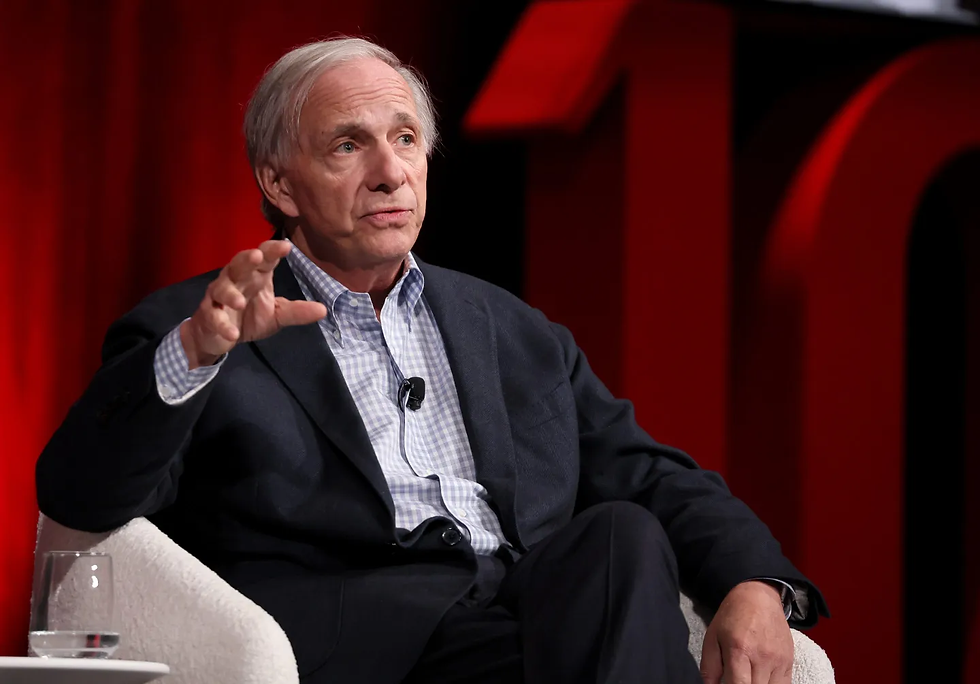My North Star for Management: Inspired by Scott Galloway
- ankitmorajkar
- May 3, 2025
- 3 min read
Updated: Aug 22, 2025

When I was younger in my career, I believed that being smart and being nice were the two magic ingredients for being a great manager. I thought - I’m thoughtful, competent, and respectful, surely I’ll be a good leader. It’s almost like telling someone they’ll be good at tennis just because they’re fit and friendly. That’s not how it works.
Management, I’ve come to realize, is a highly specialized skill - like chess, like competitive sport. It requires dedicated practice, emotional resilience, and above all, a conscious desire to get better at it every day.
Over the past few years, as I’ve led projects, managed people, and been managed myself, I’ve grown increasingly aware of what separates good managers from the rest. In particular, Scott Galloway’s take on management, raw, honest, and incredibly pragmatic, has given me a framework I deeply connect with.
This post is my North Star. A commitment to the kind of manager I aspire to be. It’s rooted in three principles, shaped by experience, and inspired by Galloway, that I want to practice every day.
1. Excellence, and Sharing Excellence
Being a manager doesn’t mean being above the work. It means being a player-coach. You don’t just give feedback; you demonstrate how it’s done. You invest in your team’s learning, and you take pride in their growth.
This is something I learned firsthand in my very first job at ZS Associates, a firm focused on pharma analytics. I joined with a blank slate - new to consulting, new to analytics. But I was lucky to be surrounded by exceptional mentors like Harshal, Vipul, Yuwraj, and Suchita. These were people who didn’t just tell me what to do. They were masters of their craft - they had put in the time, sharpened their skills, and earned the respect that came with excellence.
And more importantly, they invested in me. They were patient. They didn’t just say, “This isn’t good enough.” They said, “Here’s how we can make it better. Let me show you.”
That’s the kind of manager I want to be. One who rolls up their sleeves, leads by example, and raises the bar by sharing their own pursuit of excellence. It’s not enough to critique; you must teach, coach, and inspire.
2. Accountability, Without Apology
One of the most misunderstood aspects of management is that holding people accountable makes you mean, strict, or unkind. But the opposite is true - it shows that you respect people enough to expect the best from them.
As a manager, I believe in setting clear benchmarks, realistic goals, and then following up. If you missed your target, I’ll say, “How can I help?” But I’ll also say, “You missed your target.” If you exceeded your target, I’ll be the first to say, “Let’s celebrate.”
Accountability isn’t about punishment, it’s about progress. It creates a culture where performance is not optional, where everyone knows what they’re responsible for, and where recognition follows results.
I also believe in being confident enough to let people go when needed. Keeping someone in a role they aren’t right for isn’t kindness - it’s avoidance. And that hurts everyone in the long run.
3. Empathy That’s Personal
Early in my career, I made the mistake of assuming everyone was like me - ambitious, hungry for more, wanting to accelerate and make a ton of money. But I’ve come to learn: every person on a team has different priorities. Some people want more time off. Some want to travel more. Some want flexibility. Some want recognition. Some want creative freedom.
As a manager, it’s your job to learn those priorities and adjust your style accordingly.
Scott Galloway shares a story I love - In the ’90s, he built a high-performing team by hiring mothers who had left senior brand roles at great companies. He gave them flexible, remote roles. The result? He got incredibly disciplined, efficient, experienced talent that most companies were too rigid to accommodate. He listened and adapted. That’s what great management looks like.
If you truly understand your people, if you show them that you have a vested interest in their growth and well-being, they will trust you, stay loyal, and push harder.
People don’t need grand gestures. They need real advocacy, fairness, and genuine interest in their success.
My North Star
These aren’t buzzwords. They’re my North Star.
Lead with excellence, and raise others through it.
Be clear, fair, and unapologetic about performance.
Learn what drives each person, and manage with empathy.
I credit Scott Galloway for bringing these truths into focus - for making management feel less like a corporate checklist and more like a craft.
This is who I strive to be. And when I inevitably drift off course (as we all do), this post will help steer me back.





Comments